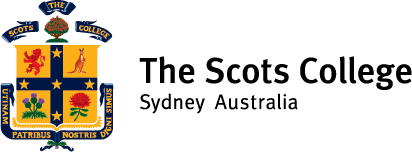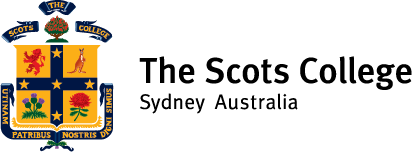I have often heard it said that schools are all 90 percent the same and five percent different. For most, this means the day-to-day classroom experience is similar and each school may have one or two innovations or programs that determine their point of difference.
I have always challenged that view.
Broadly, the purpose of education may be defined as preparing students for life in the world. One may well ask: What kind of life? Which world? To achieve what ends? To live, love and serve whom?
Broadly speaking, a good holistic education may include studies in experiences relevant to personal, intellectual, social, physical and spiritual development; work, vocation and employment; citizenship and community involvement; and creativity, aesthetic appreciation and cultural awareness.
What is an education philosophy?
A philosophy of education is a statement (or set of statements) that identifies and clarifies the beliefs, values and understandings of an individual or group with respect to education. Defined in this sense, it may be thought of as a more-or-less organised body of knowledge and opinion on education, both as it is conceptualised and as it is practiced.
A philosophy of this sort is critical in defining and directing the purposes, objectives and focus of a school.
It should also serve to inspire and direct educational planning, programs and processes in any given setting.
A philosophy of education may influence what subjects or topics are taught, how they are taught, and perhaps more importantly, the supporting beliefs and values that are taught, both implicitly and explicitly, within and around the core curriculum.
Why does it matter?
A clear educational philosophy seeks to identify and elucidate broader, often implicit, principles and themes that are not necessarily exemplified in a school’s textbooks or syllabus, but are consistent with the beliefs and values that define and focus the vision and mission.
Brave Hearts Bold Minds is a catchphrase that points to our educational philosophy at Scots. We use it in our advertising to highlight our philosophical priorities for our boys. We want people to dig below the surface and to understand the values that define and refine our culture and practice. Our Brave Hearts Bold Minds brochure provides the broader framework of this philosophy across our four phases of development – Early Years, Junior Years, Middle Years and Senior Years.
Like other faith-based schools, we place value on the spiritual quest. As a Presbyterian school, we value and acknowledge the teaching of scripture. In the words of John Calvin, “Our wisdom, in so far as it ought to be deemed true and solid wisdom, consists almost entirely of two parts: the knowledge of God and of ourselves.”
An important aim of education is the full and balanced development of persons, equipping them with the wisdom to live well. Education may be considered vocational in the sense of preparing young people for their calling in life, in all its dimensions, so that what is taught will give serious structure and direction to their journey. The quest for excellence at Scots is a quest for human excellence in all its dimensions.
The Melbourne Declaration on Educational Goals for Young Australians (MCYEETA 2008) states that, “schools play a vital role in promoting the intellectual, physical, social, emotional, moral, spiritual and aesthetic wellbeing of young people.” However, without a clear educational philosophy to guide and direct our educational choices, directions and priorities in these broad categories, our children are nurtured in a learning environment determined by some collective ‘best guesses’ and strong individuals.
How is a philosophy implemented?
At Scots, we work long and hard to understand our boys and to honour and cherish their individual and corporate value. In doing this, we work from a clear philosophical basis that recognises that boys:
- Have bodies, and we must attend to their physical nature, sexuality, gender and activity or behavior in the natural world.
- Have minds, and we must consider their thinking and reasoning, both in structure and content.
- Have feelings, and we must recognise and be sensitive to these feelings and the attitudes that go with them in teaching and learning.
- Have wills, and we must recognise intentions, judgments and decisions of persons upon which they act. These lead to inquiry into responsibility, accountability and integrity.
- Are in community and networks of care and responsibility with concerns for righteousness and justice in corporate life.
- Have intuition and aspects of character, personality, imagination and values, which transcend our analytic categories. We are called to recognise the individuality and uniqueness of persons.
That strange educational word, pedagogy
Pedagogy is a term that helps us to understand and describe how teachers cultivate, nurture, sustain and indeed transform learners. It encompasses the goals, the professional knowledge and beliefs, the selection of curriculum, the design of learning, the classroom organisation, the teaching and learning strategies, the style of lesson delivery, the nature of student interaction, the forms of control and discipline, and the methods of assessment chosen by the teacher and enacted in the classroom.
At Scots, we are very deliberate in relation to our pedagogical choices and practices – both in the individual classrooms and on the different campuses.
Schools are not 90 percent the same
They are different in every respect and schools that are philosophy driven are more likely to have stronger transformative cultures and practices.
People often ask me, “What is your educational philosophy at Scots?” In the back of my mind I am thinking, “Do you really want to spend a whole day with me?” When I push that thought aside, I usually say, “We want Scots boys to be happy, safe, aspirational and purposeful.”
When I walk around our many campuses, I see happy, content and purposeful boys and teachers striving to improve and enjoying a wonderful learning environment together. Is that an overarching outcome of our Brave Hearts Bold Minds educational philosophy? I think it is. I also think that it is our true point of difference.






